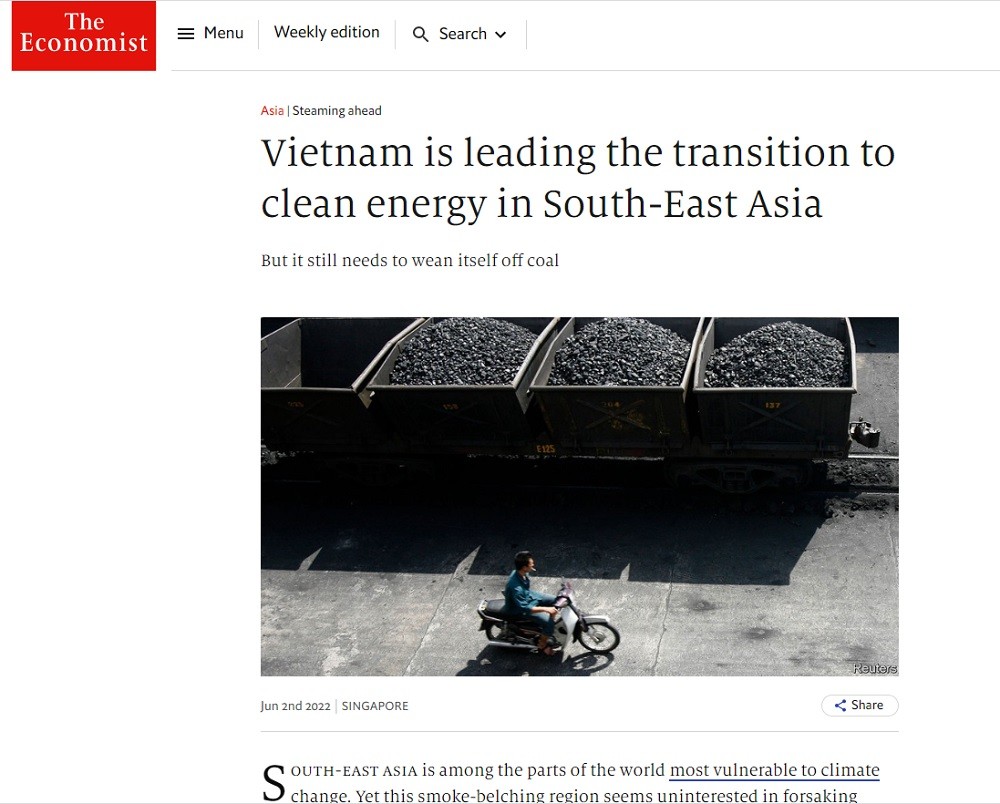
Vietnam gains 'extraordinary achievements' in clean energy transition: The Economist
Latest
 |
The article said Southeast Asia is among the parts of the world most vulnerable to climate change. Yet this smoke-belching region seems uninterested in forsaking fossil fuels.
In the four years to 2021, the share of electricity generated by solar in Vietnam increased from practically nothing to nearly 11%. Not only was this a faster rate of increase than almost anywhere else in the world. It is a bigger share than larger economies such as France or Japan have managed.
By last year, Vietnam had become the world’s tenth-biggest producer of solar power. Underscoring his country’s commitment to the energy transition, Prime Minister Pham Minh Chinh vowed in November to stop building new coal-powered plants and to reduce his country’s emissions to net zero by 2050.
Other Southeast Asian countries hoping to up their game can learn a few lessons from Vietnam.
The country has quadrupled its wind and solar power capacity compared to 2019. This "extraordinary achievement" is primarily the result of political will and market incentives.
According to the article, reforms have made it easier for foreign investors to do business in Vietnam. However, if Vietnam hopes to achieve net zero emissions by 2050, the country will have to work harder.

























